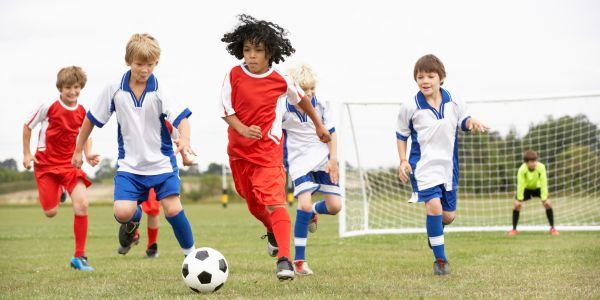Kids Confidence is Directly Impacted by Their Mistakes
All athletes make mistakes. But how kids respond to mistakes is critical.
For example, if a player misses the last shot of a basketball game, will that athlete pass up shots late in future games?
If a young athlete drops a pass in the endzone with time running out on the game clock, will he become fearful and anxious when the ball is thrown to him later in the season?
If a player received a red card late in the second half of a match, would she become overly cautious in the next game?
No matter the situation, kids’ mistakes should not hurt their future performances.
Athletes who have difficulty letting go of mistakes share several misconceptions.
- Misconception #1: Mistakes are always negative: Not true, while mistakes can impact the result of a competition, mistakes provide valuable opportunities for learning and improving an athlete’s performance in future contests.
- Misconception #2: Mistakes are a sign of a lack of talent: Incorrect. Making mistakes doesn’t mean athletes lack talent or are not good athletes. Kids need to learn how to respond or perform differently in similar circumstances to lift their game.
- Misconception #3: Avoiding mistakes is the key to success. Wrong! Trying to avoid mistakes often means they play it safe and are not pushing the limits of their potential. To be successful, young athletes must take calculated risks, aggressively compete and hustle throughout a competition.
- Misconception #4: Peak performance is the absence of mistakes: Incorrect. The pursuit of perfection leads to anxious play, not peak performance. In order to achieve peak performance, kids must have confidence in their ability to perform, given the athletic circumstances.
How do Elite Athletes Move on Quickly from Mistakes or Losses?
Elite athletes are not immune from mistakes; they have just learned how to use those miscues to benefit their growth as athletes.
To move on from mistakes, elite athletes:
- Process the circumstances of what happened during a competition.
- Learn how to prevent, avoid or rectify the issues that led to the mistake.
- Look to develop mental, physical, technical or tactical skills to improve their performance when facing similar circumstances.
Most importantly, elite athletes don’t measure or assign significance to mistakes.
In other words, they believe there are no “big” mistakes. Mistakes are just mistakes–opportunities to learn and grow their game.
New England veteran and wide receiver Matthew Slater has made his share of mistakes during his career. However, Slater’s perspective on mistakes has kept him moving forward throughout his career.
“Failure is a part of your career as a professional,” said Alter. “You’re gonna have high moments, and you’re gonna have lows. You hope to have more highs than lows, but the most important thing is that you learn from it and grow and try to improve.”
Growing as an athlete is a process. Kids are better athletes than they were last year because they learned from their mistakes. The key to confidence and peak performance is to stay committed to the “growth process.”
Help kids ask themselves, after making mistakes, “does this response help or hurt my confidence and performance?”
This question allows athletes to examine the potential effects of their response to mistakes. Once they see how their response impacts their game, they can choose an alternative way to process those mistakes.
Related Articles on Kids’ Mental Game:
- When Athletes Only Dwell on Post Game Mistakes
- Addressing Anxiety, Mistakes and Low Confidence in Youth Sports
- Josh Thole’s Take on Coping With Mistakes
*Subscribe to The Sports Psychology Podcast on iTunes
*Subscribe to The Sports Psychology Podcast on Spotify
Improve Your Mental Game From Anywhere In The World

We’re certain that, as a parent, you want to help your child develop confidence and discipline in sports and life. And as a sports parent, you’d love for your children to reach their potential in sports. But encouraging your child to strive for greatness without pressuring them can be a challenge.
You can get expert mental coaching with us from anywhere. Meet with us via Zoom, Skype, FaceTime or phone call. With today’s video technology, we are able to connect with athletes and coaches all over the globe.
Call Us Today to Schedule Your Free 15-Minute Session.
Find Out How Your Athlete Can Benefit From One-on-One Mental Coaching!

